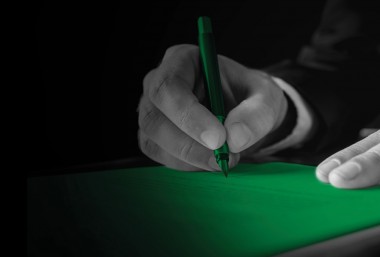Intellectual property (IP) licensing often starts with a dispute. Threats of infringement are made and rebutted, before the parties see sense and agree to settle.
In settling a dispute, the parties don't want to revisit the issue again in the future. For that reason, agreements drafted to settle IP disputes often contain clauses preventing the licensee from challenging the IP in return for its licence or covenant not to sue. That is the essence of most settlements, though there are complexities hidden within this simple approach. A 2012 United States decision emphasises the need for careful drafting to get these agreements right.
Rates Technology v Speakeasy
In Rates Technology, Inc. v. Speakeasy, Inc., No. 11-4462-cv, 2012 WL 2765081 (2dCir. July 10, 2012), the US Court of Appeals, Second Circuit, considered an appeal on a clause in a settlement agreement which prevented one party (Speakeasy) from challenging the validity of the patents of the other party (Rates Technology). In return for this agreement not to challenge, Rates Technology had agreed not to sue Speakeasy under the relevant patents and the parties had settled their differences.
Speakeasy's affiliate subsequently sought to challenge the Rates Technology patents. Rates Technology sought to enforce the no challenge clause against Speakeasy on the basis it was assisting its affiliate to challenge the patents.
The Court considered a long line of case law in the United States on this point. The leading case is Lear, Inc. v. Adkins, 395 U.S. 653 (1969) which held that licensees should not be estopped from challenging patents licensed to them on the basis that there is a balance to be struck between the public benefit of contractual certainty (i.e. upholding what parties agree in contract) and the public benefit of removing invalid patents from the patent register.
In Rates Technology, the Second Circuit upheld the lower court's finding that the no challenge clause was unenforceable on public policy grounds underLear. The Court placed emphasis on when the settlement agreement was entered into. In this case it was pre-litigation and the Court reasoned that, because the parties hadn't been through discovery when the matter settled, Speakeasy hadn't been able to reach a considered view on whether the patents were valid or not. On that basis, the settlement agreement shouldn't prevent this review of validity at a later date.
If the settlement agreement was entered into after litigation had commenced, then the position might well have been different.
Enforcing the no challenge clause
This is an important finding, because, while it is well understood that no challenge clauses in IP licence agreements entered into, in the absence of a dispute, are usually invalid in the US and the EU (and other jurisdictions), in many cases they have been considered enforceable when settling genuine disputes. This is because the very nature of IP settlement agreements is that one party withdraws its claim and grants a licence or covenant not to sue while the other party agrees not to challenge the IP in the future. In certain cases, the other party also pays a royalty or other fee.
This position has been clarified, in the US at least, where a licence or covenant not to sue is granted pre-litigation. Now the IP owner should be very wary of relying on a no challenge clause to stop the other party undermining its IP in the future. Couching a licence agreement as a settlement agreement is not going to resolve the issue.
There are other options to consider when drafting these agreements on behalf of IP owners, including rights to terminate the agreement if the patents are challenged in the future, or lengthy notice periods before any challenge can be made. These clauses could be in addition to a no challenge clause if the agreement covers jurisdictions where no challenge clauses may be enforceable. However, in the US at least, it seems they will not be enforced if litigation has not commenced when the agreement is signed.
In New Zealand and Australia
The enforceability of no challenge clauses in IP agreements hasn't been litigated directly in New Zealand or Australia, so it is not clear how they will fare in relation to local patent licences and settlement agreements. However, the global nature of IP means many licences and settlements will involve valuable patents in the US and the EU (and other jurisdictions with similar restrictions). This means any licence or settlement agreement or covenant not to sue needs to be drafted by someone familiar with the complexities that these international jurisdictions bring.
